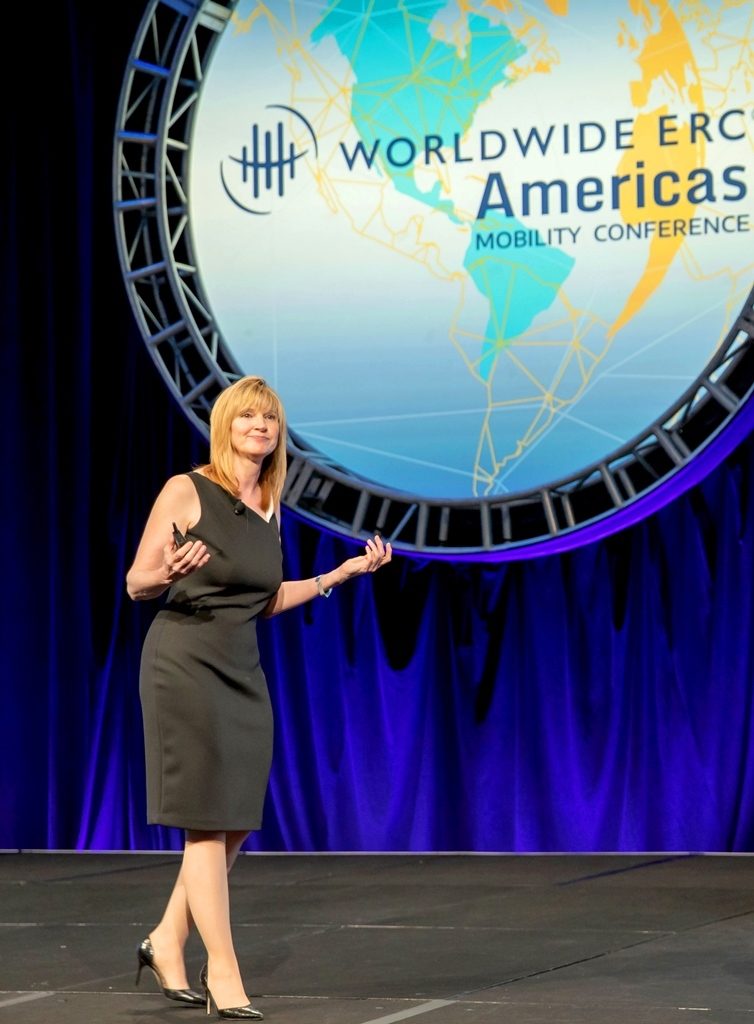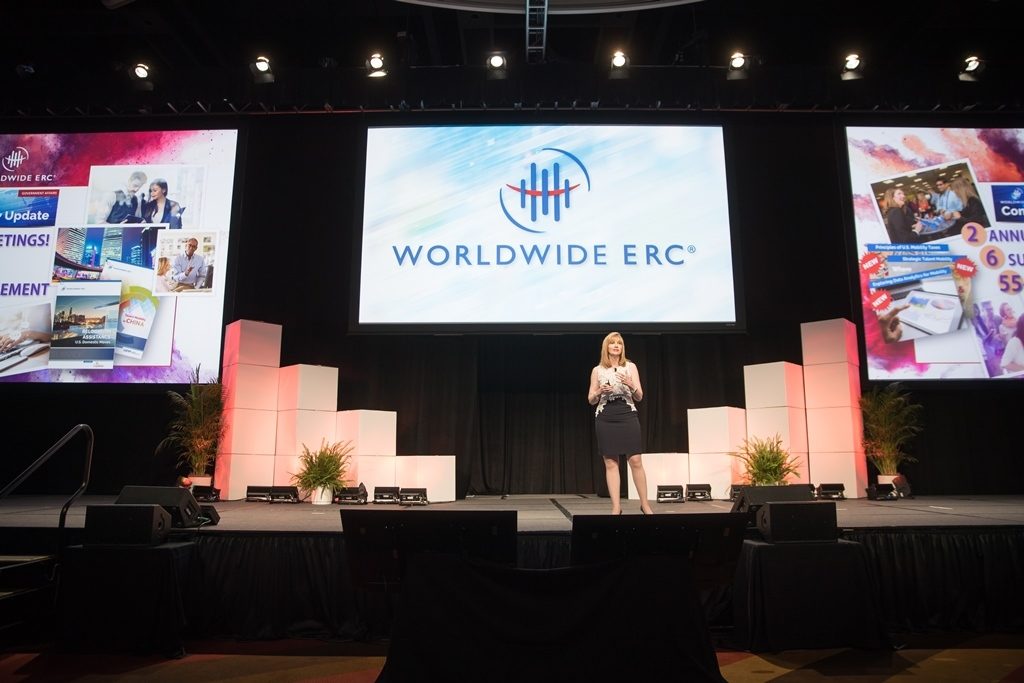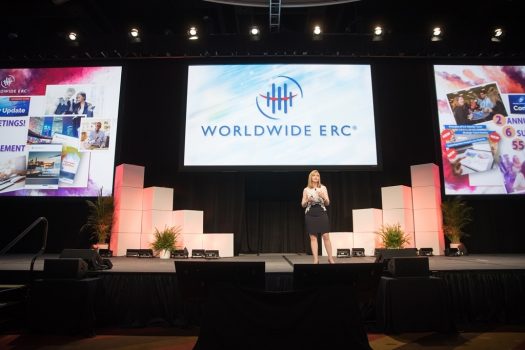To survive in the ever-changing global arena, companies should rework their strategy, keeping in mind that borders cannot act as barriers against talent mobility. Peggy Smith, President of Worldwide ERC®, tells us more

Peggy Smith is the person to turn to for all things related to companies making an overseas move, and, more importantly, sustaining and building their presence there. After all, she is the President and CEO of Worldwide ERC®, an organisation that functions as the primary source of information, education and networking for the worldwide workforce mobility industry, for over 8,000 member companies.
With the millennial workforce increasing in size and impact, global communications creating new avenues to connect for work and play, technology acting as a key disruptor and political changes affecting economic and social linkages, companies are grappling with a wide range of issues. It is key to note here that expansion overseas is not just affected by these factors but also by the individual employee’s ability to adapt and form positive work relations with his/her counterparts from other countries and cultures. It is these issues that Peggy looks into – and seeks to help companies handle issues on talent management and retention, mobility strategies and workplace harmony between members of different generations and cultural backgrounds. Under her, the Worldwide ERC® expanded its reach further in the APAC (Asia-Pacific), EMEA (Europe, Middle East and Africa) and LATAM (Latin America) regions.
In this interview with Culturama, she shares her thoughts on several topics, which include noteworthy trends in the mobility arena, some key pointers to ensure harmonious working relationships across borders and India’s potential role in the global workforce arena.
As CEO of Worldwide ERC®, you have a ring seat in the global arena. What are some notable trends you have observed in terms of the attitude towards mobility and exploring hitherto unknown regions through job opportunities?
One overarching trend is that we see our workforce now as one big pool of talent, rather than as segmented by regions or countries. We refer to the ‘global workforce’, knowing that deploying talent around the world is much more fluid. And regarding technology and data, the future of recruiting and hiring is increasingly going to be accomplished through global talent mapping – tracking talent within a particular labour market, with a particular skillset, so that we have insight analytics on whether to deploy someone to a location, or whether that talent can be found right in that market.
In India, you’re experiencing a trend that has been highlighted by globalisation: bringing more women into the workforce. According to the World Bank, only 27 per cent of working-age Indian women have paid jobs. Like other countries, for India to realise its full potential, it is important to maximise the number of able citizens in the labour force – that is how economies grow. As more companies choose to do business in India and encourage more female participation, the number of women in the workforce will rise.
 You stated in an interview with Global Mobility Insider that ‘the world’s talent pool has never been more mobile’. Given this, what are three things that employers must keep in mind when hiring (across levels)?
You stated in an interview with Global Mobility Insider that ‘the world’s talent pool has never been more mobile’. Given this, what are three things that employers must keep in mind when hiring (across levels)?
Be aware that employees are vetting employers as much as they are being sized up as a potential employee! Employees today want experiences – which is why they are so inclined to global opportunities – and they want to work for companies that match their values, that have a social conscience and a purpose, and offer flexibility in addition to good compensation.
We are entering an environment where constant upskilling is a necessity. Employers are finding that sometimes it is advisable to hire for the job and then train for the future skills they need. We will see companies incorporate training by partnering with brick and mortar or online educators and integrating employee learning into the flow of everyday work, delivering it at the point of need. Similarly, top talent is looking for training and career guidance to advance, so employers do not want to lose skilled professionals to competitors who are providing this kind of leadership.
There is a growing contingent population of skilled workers and business-savvy professionals who can fill gaps in talent and competencies. Many of these individuals are or have been in traditional jobs, but crave the independence and entrepreneurial option of on-demand work. As the talent crunch gets tighter, employers will want to develop their ability to seek such workers to complete their workforce.
What are some key human values that are important for companies and individuals to successfully work with people across cultures and borders?
‘Practising good global citizenship’ is my best answer!
But let’s break it down – some of the top values include empathy, respect, flexibility, resilience, collaboration and cooperation. And while this next thought doesn’t fall under values, I’ll share that I also think it’s important to have a blend of temperaments to work well in a global team. We all process information differently, and when we have a mix of people who contribute a spectrum of dynamic, analytical, conceptual, expressive and visionary perspectives, the outcome is often extraordinary.
 How is India expected to impact the global workforce scene as a mobility destination?
How is India expected to impact the global workforce scene as a mobility destination?
It is exciting to watch India’s emerging role in global business and its growing reputation as a high-potential market. Digital technologies are driving business, and we’re seeing companies recognise India’s capabilities in big data and analytics, artificial intelligence, machine learning, IoT (the Internet of Things), blockchain and robotics. This transition of India to a country with new revenue sources for MNCs, and not just as a means of cost reduction or productivity improvement, opens the country to great possibilities as a mobility destination.
As borders become stronger and countries become more stringent about entry requirements, will the mobility scene see a decline in terms of expat assignments? How will it impact the larger global business ecosystem?
Over many years, we have developed a worldwide multilateral system that is made up of the world’s economies. If significant participants pull away from the global economy or established trade agreements, the impact may be significant. It is a delicate balance to manage immigration and still allow for skilled foreigners to enter a country to augment the workforce. We have certainly seen more countries adopt nationalistic policies, which reduces the ability to bring in talent from other regions and slows the flow of globalisation. And we have also seen other countries opening their borders more flexibly, as with France’s easy-to-access tech visa for founders, employees, and investors; and Canada’s Express Entry and Skilled Worker programmes.
Countries and companies that understand growth
and expansion know that, no matter what, we are a world that is connected and interdependent across borders, countries, and continents. They will always seek that balance, and they will always need outside talent to succeed. So while we may see a flattening of assignments in some locations, there will be other regions that encourage an influx of workers.
Millennials are said to move between jobs and locations quickly, because of their need for change and novelty. What are some key changes they might introduce in the workplaces and in the larger mobility scene?
introduce in the workplaces and in the larger mobility scene?
This is a generation that is good at asking ‘Why not?’ and ‘What if?’ Because millennials question the status quo so compellingly, they have changed whole industries as a result. And this same propensity to challenge tradition is changing the way we manage mobility.
When we look through their lens at information delivery, it’s clear that millennials have been a driver for companies to make everything mobile so that information and tools can be accessed across multiple devices. That makes content and training (even on issues like business culture, language and intercultural business skills) accessible for workers in any time zone and enables people to be where they need to be when they need to be there…and that drives engagement and retention.
We know that younger professionals crave experiences, and a natural next step is for companies to leverage mobility as a component of their rewards programme. Companies might consider thinking of rewards as experiences rather than as financial remuneration: for example, a short-term global assignment could be an incentive for meeting deliverables; or employers could add a ‘bleisure’ (business + leisure) element to a business meeting to recognise an employee for executing a successful project.
As adventurous as our younger generations are – a trait that makes them more interested in global assignments – some in the mobility industry have encountered situations where a younger person changes his or her mind about the assignment before it is completed, and lacks awareness about the impact that might have on the business initiative. We are likely to see companies developing assignments in a manner that gives employees a global experience without risking an abbreviated mission.
Photos: Courtesy Peggy Smith
